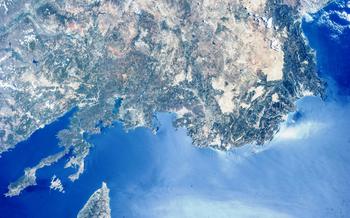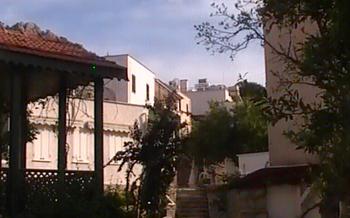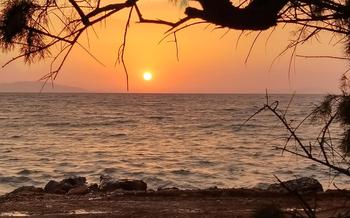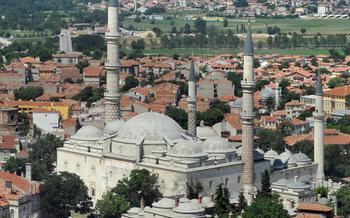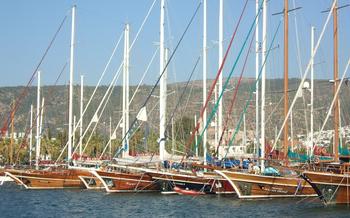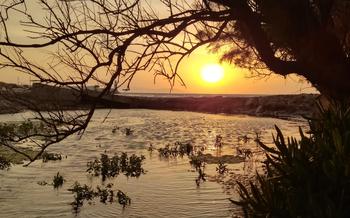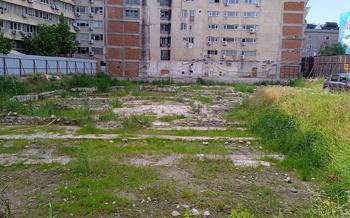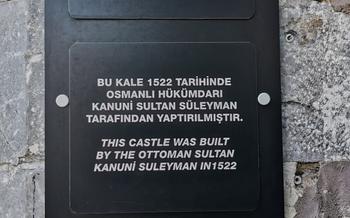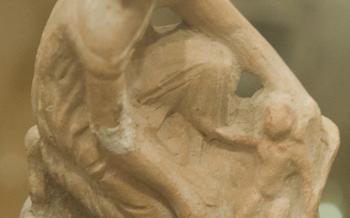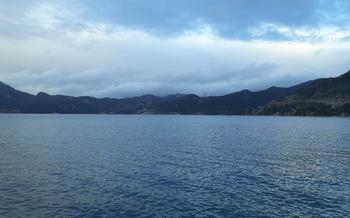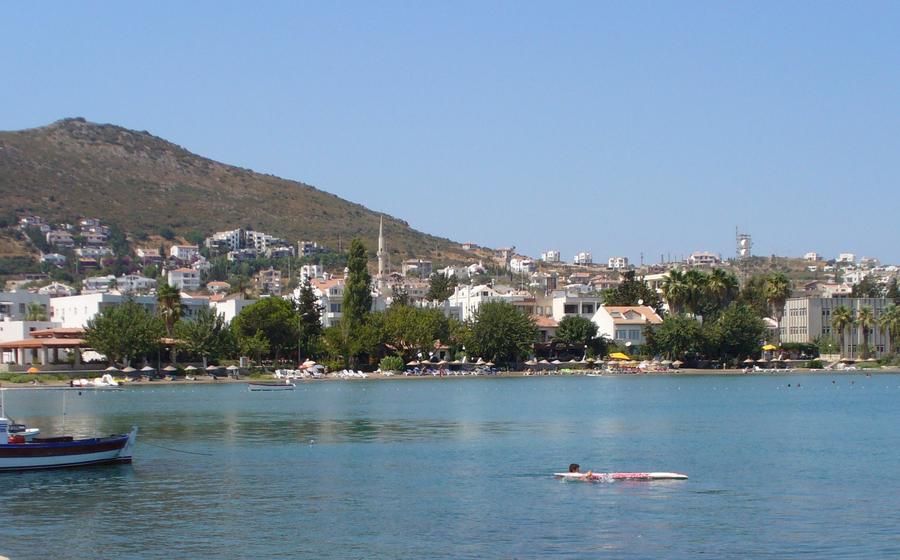
Poseidon Temple
- Datça: A Captivating Gem on Turkey's Aegean Coast:
- Journey to the Ancient Poseidon Temple
- Unveiling the Secrets of the Temple
- A Mystical Setting for the Temple
- A Glimpse into Ancient Greek Mythology
- Exploring the Enchanting Surroundings
- A Photographer's Paradise: Capturing the Essence of Datça
- Local Cuisine and Culinary Delights
- A Haven for History Buffs
- Cultural Immersion and Local Traditions
- Practical Tips for Visitors:
- Unforgettable Experiences at the Temple
- Capturing the Essence of Datça
- Sustainable Tourism and Responsible Travel
- Insider Tip: Hidden Gem
Datça: A Captivating Gem on Turkey's Aegean Coast:
Datça, a picturesque peninsula nestled on the southwestern coast of Turkey, is an enchanting blend of history, natural beauty, and cultural charm. Once a part of the ancient Greek civilization, Datça's rich heritage is reflected in its numerous historical sites, including the awe-inspiring Poseidon Temple. The region boasts a unique geographical identity, with stunning coves, secluded beaches, and crystal-clear waters. Its diverse landscape, from rugged mountains to lush forests, offers breathtaking views at every turn. Datça's cultural tapestry is a fusion of Turkish traditions and influences from its Greek past, creating a vibrant and welcoming community. Visitors can savor delicious local specialties, such as fresh seafood and organic produce, while immersing themselves in the region's rich history and natural splendor.
Journey to the Ancient Poseidon Temple
The Poseidon Temple, a testament to ancient Greek architecture and mythology, stands proudly on the picturesque shores of Datça. Steeped in historical significance, the temple's origins can be traced back to the 4th century BC, when Doric Greeks, renowned for their maritime prowess, established a colony in the region. According to legend, the temple was erected in honor of Poseidon, the mighty sea god, to seek his favor and protection during their seafaring adventures.
Situated on the idyllic Knidos Peninsula, the temple's strategic location allowed sailors to pay homage to Poseidon before embarking on their perilous journeys across the Aegean Sea. The temple's presence served as a beacon of hope and a symbol of divine guidance for those navigating the unpredictable waters. Its commanding position atop a hill overlooking the sea provided ancient mariners with a sense of reassurance and a connection to the divine.
The temple's architectural design showcases the Doric style's simplicity and elegance. Constructed from local limestone, the temple features a rectangular cella, or inner chamber, surrounded by a colonnade of sturdy columns supporting a gabled roof. The temple's exterior is adorned with intricate friezes and reliefs depicting scenes from Greek mythology, offering glimpses into the beliefs and artistic expressions of the ancient Greeks.
Over the centuries, the temple has undergone various transformations and restorations, reflecting the passage of time and the influence of different civilizations. Excavations conducted by Turkish and international teams have unearthed a wealth of artifacts, including sculptures, inscriptions, and pottery, providing valuable insights into the temple's history and religious significance. These discoveries have shed light on the rituals and ceremonies performed within the temple's sacred walls, offering a glimpse into the spiritual practices of the ancient Greeks.
Unveiling the Secrets of the Temple
Archaeological excavations at the Poseidon Temple have been conducted by teams from Turkey and various international institutions. These excavations have unearthed an array of artifacts, including pottery, inscriptions, and coins, shedding light on the temple's history and significance. The discoveries have provided valuable insights into ancient Greek culture, religious practices, and trade networks.
The inscriptions found at the temple have been particularly crucial in understanding the temple's dedication to Poseidon and the rituals associated with his worship. These inscriptions have also provided information about the temple's construction, its maintenance, and the offerings made by devotees.
The excavations have further revealed the architectural complexity of the temple, showcasing its intricate design and construction techniques. The remains of altars, statues, and other structures have helped archaeologists reconstruct the temple's layout and understand its function as a religious and ceremonial center.
Ongoing research and future excavations at the Poseidon Temple hold the promise of further discoveries that will contribute to our understanding of ancient Greek civilization and the role of this sacred site in the region's cultural and religious landscape.
A Mystical Setting for the Temple
The Poseidon Temple sits amidst a breathtaking landscape that enhances its mystical aura. Perched on a rocky promontory, the temple offers panoramic views of the Aegean Sea and the surrounding islands. The azure waters stretch out to the horizon, creating a serene backdrop for the ancient ruins.
The site is surrounded by unique geological formations and rock formations that add to its charm. Jagged cliffs, eroded by centuries of wind and sea, form dramatic backdrops for the temple. The interplay of light and shadow on the rocks creates a mesmerizing effect, especially at sunrise and sunset.
The atmosphere at the Poseidon Temple is one of tranquility and serenity. The sound of the waves crashing against the shore and the gentle breeze rustling through the trees create a calming ambiance. Visitors can find solace and peace amidst the ruins, away from the hustle and bustle of modern life.
The temple's setting is ideal for meditation, reflection, and spiritual connection. The serene atmosphere and the connection to ancient history create a space for visitors to contemplate the mysteries of the universe and their place in it.
A Glimpse into Ancient Greek Mythology
The Poseidon Temple is steeped in ancient Greek mythology, providing a fascinating glimpse into the beliefs and practices of the ancient Greeks. According to legend, Poseidon, the god of the sea, was angered by the actions of the hero Hercules, who had stolen his prized horses. In his fury, Poseidon sent a giant sea monster to attack Hercules and his companions. The hero, with his superhuman strength, defeated the monster and returned it to Poseidon, who was so impressed by Hercules' bravery that he forgave him and gifted him with a golden cup.
The temple served as a sacred site where the ancient Greeks worshipped Poseidon, seeking his favor and protection. They believed that the god had the power to control the seas, bring storms and earthquakes, and bestow prosperity and abundance upon those who honored him. The temple was a place of pilgrimage and devotion, where people came to pray, make offerings, and participate in religious rituals and ceremonies.
Furthermore, the temple's location on the coast held deep symbolic significance. The sea was considered a sacred realm in ancient Greek mythology, and Poseidon was revered as the ruler of this vast and mysterious domain. The temple's proximity to the sea allowed worshippers to feel a closer connection to the god and to experience the power and majesty of the marine environment.
Exploring the Enchanting Surroundings
Beyond the ancient ruins of the Poseidon Temple, Datça offers a plethora of natural wonders that beckon visitors to explore its enchanting surroundings. The crystal-clear waters of the Aegean Sea invite swimmers, snorkelers, and divers to immerse themselves in a vibrant underwater world teeming with marine life. Hidden coves and secluded beaches, accessible only by boat or on foot, provide tranquil havens for relaxation and sunbathing.
For those seeking adventure, hiking trails wind through stunning landscapes, offering breathtaking views of the rugged coastline and lush forests. The unique geological formations and rock formations, sculpted by centuries of wind and water, create a captivating backdrop for exploration. Whether hiking, biking, or simply strolling along the scenic paths, visitors can immerse themselves in the beauty of nature and create lasting memories.
A Photographer's Paradise: Capturing the Essence of Datça
Datça, with its picturesque landscapes and ancient ruins, offers a captivating backdrop for photography enthusiasts. The golden hues of sunrise and sunset cast a magical glow on the temple site, creating breathtaking opportunities for capturing stunning photographs. The unique rock formations, ancient ruins, and natural wonders provide endless subjects for creative exploration. Whether you're an amateur photographer or a seasoned professional, the beauty of Datça will undoubtedly inspire your artistic vision.
Embark on a photographic journey through the enchanting surroundings of the Poseidon Temple. Capture the serenity of the site as the sun dips below the horizon, casting a warm glow on the ancient ruins. Experiment with different angles and perspectives to create unique compositions that showcase the temple's grandeur against the backdrop of the Aegean Sea.
Don't miss the opportunity to photograph the fascinating rock formations that dot the landscape around the temple. These natural wonders, shaped by centuries of erosion, offer a unique contrast to the structured lines of the ancient ruins. Play with light and shadow to emphasize the intricate details and textures of these geological masterpieces.
The beauty of Datça extends beyond the temple grounds. Explore the picturesque coves, hidden beaches, and crystal-clear waters that surround the area. Capture the vibrant colors of the underwater world through snorkeling or diving, and immortalize the stunning views of the Aegean Sea from various vantage points.
Let your creativity soar as you immerse yourself in the natural beauty of Datça. Whether you're a seasoned photographer or simply looking to capture the essence of your travels, the Poseidon Temple and its surroundings offer a treasure trove of photographic opportunities. Embrace the magic of this ancient site and create lasting memories through the lens of your camera.
Local Cuisine and Culinary Delights
Datça is a culinary paradise, offering a delectable array of fresh seafood, organic produce, and traditional Turkish cuisine. Local restaurants and cafes serve up authentic flavors, tantalizing the taste buds with every bite. Indulge in the freshest catches of the day, grilled to perfection and seasoned with aromatic herbs. Savor the flavors of succulent olives, locally produced honey, and a variety of wines, each with its own unique character. Embark on a culinary journey that showcases the region's rich gastronomy, where every meal is a celebration of local ingredients and culinary traditions.
A Haven for History Buffs
Datça and its surroundings are a treasure trove for history enthusiasts, boasting a rich tapestry of ancient sites and historical landmarks. The region was once home to various civilizations, including the Carians, Greeks, Romans, and Byzantines, each leaving their indelible mark on the landscape.
Just a short distance from the Poseidon Temple, visitors can explore the ancient city of Knidos, with its well-preserved ruins, including a theater, agora, and temple. The nearby island of Rhodes, a mere boat trip away, is home to the medieval Old Town of Rhodes, a UNESCO World Heritage Site, with its imposing fortifications, narrow streets, and historical monuments.
History buffs can embark on guided tours and excursions to delve deeper into the region's rich past. These tours often include visits to ancient ruins, museums, and historical sites, providing insights into the lives and cultures of past civilizations. Whether it's exploring the ancient city of Knidos, marveling at the medieval architecture of Rhodes, or discovering hidden historical gems, Datça offers a captivating journey through time for history enthusiasts.
Cultural Immersion and Local Traditions
Datça is a treasure trove of cultural experiences, offering a glimpse into the authentic traditions of Turkey. Immerse yourself in the lively festivals that showcase traditional dances, music, and colorful costumes. These vibrant celebrations are a testament to the region's rich heritage and provide a unique opportunity to witness the local culture firsthand.
Explore the local handicrafts and textiles, which reflect the artistry and craftsmanship of the region. Discover unique souvenirs and mementos that capture the essence of Datça's cultural identity. Engage with the friendly locals, who are always eager to share their stories and traditions. Learn about their way of life, their customs, and their deep connection to the land.
Datça's cultural immersion extends beyond festivals and handicrafts. Indulge in traditional Turkish cuisine, which is a symphony of flavors and aromas. Savor fresh seafood, organic produce, and delectable dishes that showcase the region's culinary heritage. Embark on a journey of taste and discover the secrets of Turkish gastronomy.
As you delve deeper into Datça's culture, you'll uncover a tapestry of traditions that have been passed down through generations. Respect local customs and etiquette, which are essential for fostering a harmonious and respectful environment. Embrace the opportunity to connect with the local community and create lasting memories that will forever remind you of the warmth and hospitality of Datça.
Practical Tips for Visitors:
Planning a visit to the Poseidon Temple in Datça requires some practical considerations to ensure a smooth and enjoyable experience. The best time to visit Datça and the temple is during the shoulder seasons (May-June and September-October) when the weather is pleasant and there are fewer crowds. Visitors should dress comfortably and wear sturdy footwear suitable for walking on uneven surfaces. The site is accessible by car or public transportation, and there is limited parking available near the temple. Accessibility for visitors with disabilities may be limited due to the uneven terrain, so it's advisable to plan accordingly. Respecting local customs and etiquette is essential for a positive experience. Visitors should be mindful of noise levels and refrain from disturbing the tranquility of the site. Additionally, it's important to be aware of local dress codes and cultural norms to ensure a respectful and enjoyable visit.
Unforgettable Experiences at the Temple
A visit to the Poseidon Temple offers more than just a glimpse into ancient history. It's an opportunity to immerse yourself in the mystical aura and participate in unique experiences that connect you with the ancient world. Throughout the year, the temple grounds host traditional Greek rituals and ceremonies, allowing visitors to witness the continuation of ancient practices.
Cultural events and performances are also held at the site, showcasing traditional music, dance, and theater. These performances bring the temple to life, enabling visitors to experience the vibrant culture that once flourished here. Additionally, workshops and educational programs are organized, providing opportunities for visitors to learn more about ancient Greek history, mythology, and archaeology.
Participating in these activities creates lasting memories and a deeper understanding of the ancient world. It's a chance to step back in time, connect with the spirit of the temple, and gain a profound appreciation for the rich cultural heritage of Datça and Turkey.
Capturing the Essence of Datça
To truly immerse yourself in the essence of Datça, venture beyond the ancient ruins and natural wonders. Explore the local markets and bazaars, where you can haggle for unique souvenirs and handicrafts that reflect the region's rich cultural heritage. Discover art galleries and exhibitions showcasing the talents of local artists, capturing the essence of Datça's creative spirit.
As the sun sets, live music venues and bars come alive, offering a vibrant nightlife experience. Enjoy traditional Turkish music, sip on local wines, and mingle with friendly locals. Datça is a place where the past and present harmoniously coexist, creating a welcoming and vibrant community.
Insider Tip: Don't miss the opportunity to connect with the locals, who are known for their warm hospitality and love for their hometown. Engage in conversations, learn about their way of life, and gain a deeper understanding of the authentic culture of Datça.
Sustainable Tourism and Responsible Travel
As responsible travelers, we have an obligation to protect the environment and cultural heritage of the places we visit. When exploring the Poseidon Temple and the surrounding area, it is crucial to adhere to sustainable tourism practices. Respect the natural beauty of the site by avoiding littering and disturbing the wildlife. Support local businesses that prioritize sustainability and contribute to the community's well-being. Encourage fellow travelers to embrace responsible practices, ensuring that the magic of Datça remains intact for generations to come.
Insider Tip: Hidden Gem
While exploring Datça, venture beyond the Poseidon Temple to discover the hidden gem of Knidos, a nearby village steeped in ancient history and charm. Explore the ruins of the ancient city of Knidos, once a thriving port and cultural center. Stroll along the cobblestone streets, marvel at the well-preserved theater, and soak in the serene atmosphere of this ancient site.
Seek out secluded coves and pristine beaches accessible only by boat or on foot. Find your own private paradise, bask in the warm sun, and swim in the crystal-clear waters.
Unveil the hidden treasures of Datça's lesser-known gems, such as the picturesque village of Ovabükü with its stunning views and relaxed vibe. Embark on a unique and off-the-beaten-path experience, creating lasting memories in this magical region.
